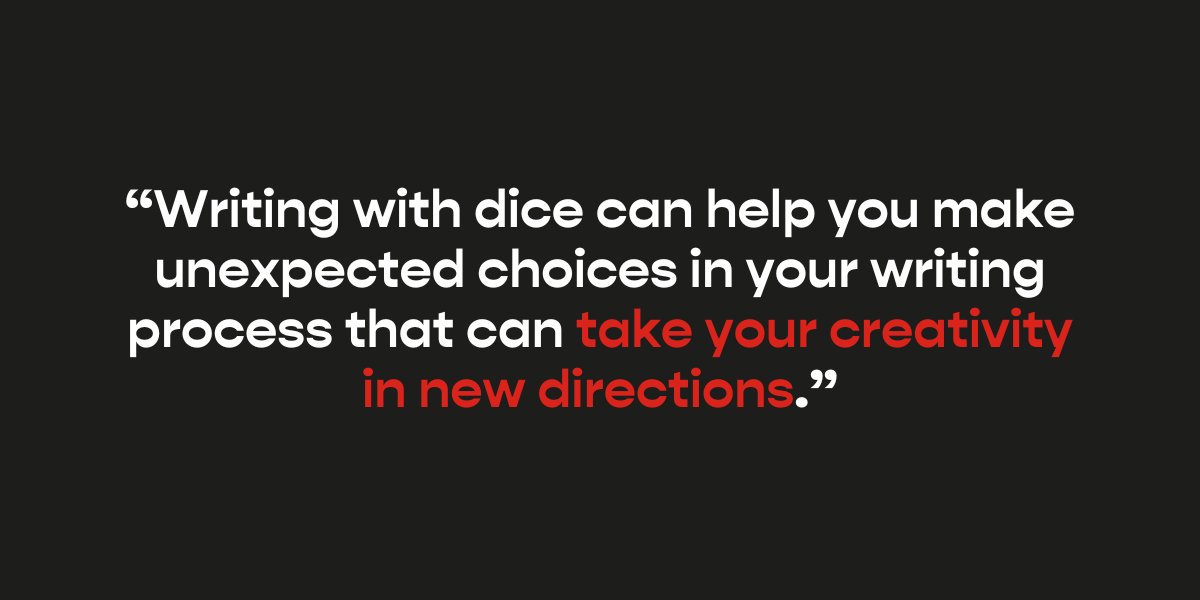
Meet The Oracle
This approach is based on the idea that we can ask an “oracle” our questions to steer our writing in interesting and inspiring directions. Just as our friends or partners sometimes offer to do when bribed with coffee and cake. In this instance, however, the oracle is the dice.
The dice take on the role of the oracle, answering our questions and relieving us of the burden of thinking too long about a decision.
“But what questions should I ask, and what do I gain from a generic yes/no answer?” you may ask.
The short answer is: it depends…
It depends on the context in which you ask the questions.
It could be anything from the genre, basic considerations about how you want to tell the story, the characters involved, or the tropes and ideas you want to incorporate. Maybe even the different storylines and how they develop.
All of this is the context in which we make narrative decisions. In this exercise, it’s what will inspire our questions.
When you want to know where the story might go based on what you already know, ask the oracle. Don’t overthink it. Instead, introduce chance and see what the oracle says. You never know when the story will take you in new directions.
How do I know what the oracle says…?
The general idea is quite simple: you formulate a question that can be answered yes or no, and roll the three six-sided dice. The oracle will answer with the results you see in the table below.
Add up the numbers on the dice and look up the oracle’s answer in the table.
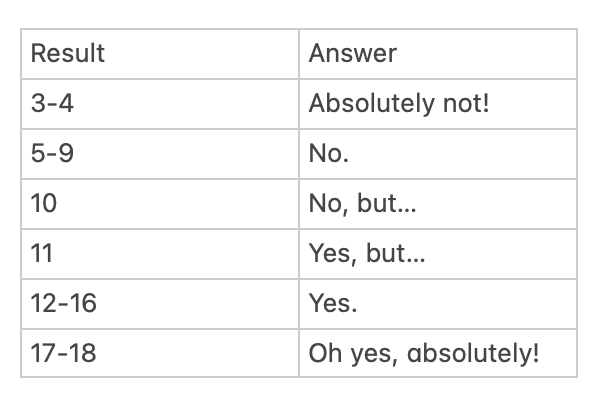
In addition to clear yes/no answers, the Oracle can also give us more nuanced answers: a weakened form (10,11) and an intensified version (3-4, 17-18).
Furthermore, if you have extra context from the story to add to the question, apply the modifiers in the below table to the sum of your dice.
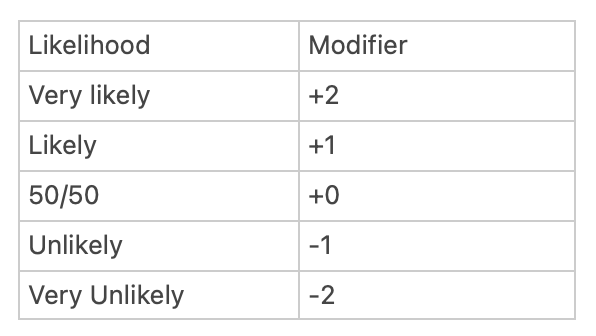
Confusing? Let’s see how it works in writing a scene:
My Question: Is it raining when Isabel leaves the café? (It’s unlikely, it’s a hot day in the story.)
Result: The three dice show: 4, 4, 3 to equal 11. I subtract 1 for “unlikely.” My final answer is 10. (No, but…)
This simple question alone created a better atmosphere in the scene — and it also gave me some ideas for a later scene in which the approaching summer storm influences the rest of the story.
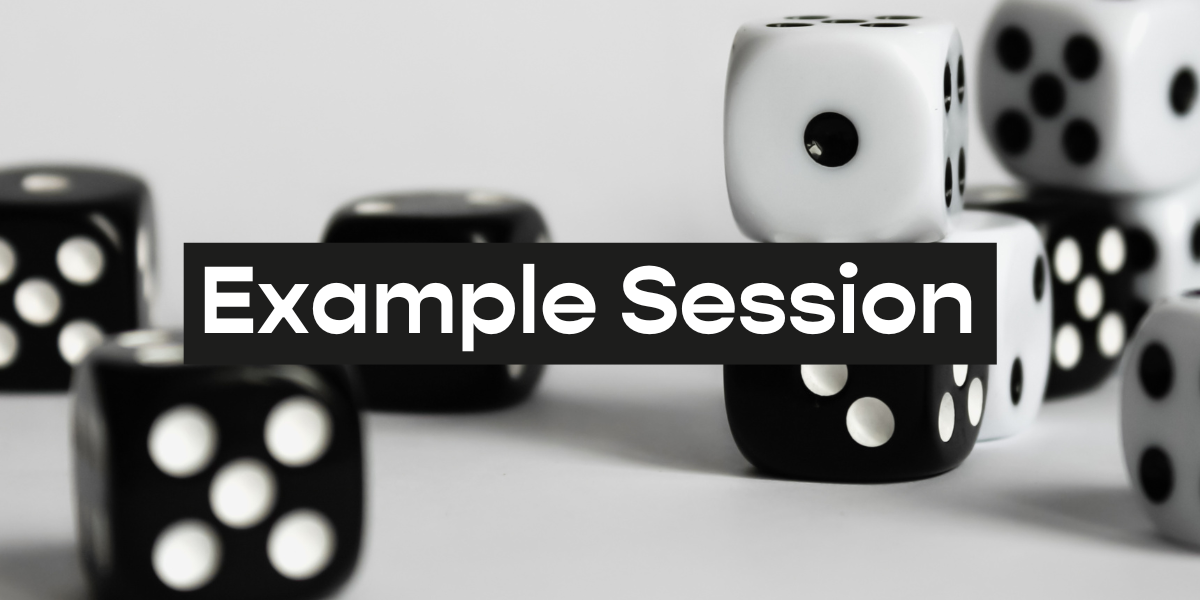
Let's have a look at a longer example: how I use the oracle at the very start of drafting a story.
All I have prepared for this is the dice, my Freewrite, a stack of blank index cards, and a small hourglass.
I use the index cards for lists of things that are relevant to my ideas, sometimes prepared, sometimes made up as I write to let the dice make a decision. One of the lists I created before the first session was a collection of interesting genres that I liked for my next story.
I randomly drew three themes from that list: Victorian, Supernatural, and Soldier.
I already liked this combination, and the first ideas didn’t take long to come. I asked some oracle questions ("Is this set in Victorian times?”, “Is it a haunted house?”, etc.) to help me figure out the basic setting. What I learn is that we are not in Victorian times, but the story takes place in a Victorian villa that is said to be haunted. The villa has been converted into a hotel and has attracted many tourists since the bloody history of the house became known on the internet.
With a few more questions, I learn that the protagonists are guests at the hotel. One of the protagonists has been trying unsuccessfully for years to become famous as an influencer of supernatural phenomena — with little success. He has his best friend with him, who has just finished his studies and has been persuaded to go on a trip. He doesn't believe in ghosts.
That's enough information for me to work with for the setting. I take notes on an index card and ask the oracle where to start. Turns out the two friends have just arrived by train and are making their way through the old town to the villa.
I turn the hourglass and start to write.
The sand runs out as the two protagonists navigate through the hustle and bustle of the town and get lost in the maze of winding streets. The hourglass tells me it's time to interrupt my writing with a random event. I use a combination of oracle questions and spontaneous lists of possibilities that come to mind. Again, I let the dice decide which option to choose.
I find that my protagonists are approached by a merchant and lured into his shop. There, they discover an old object that seems to magically attract them. Cool! The scene has gained a bit more flavor thanks to this visit. I also wonder what the object has to do with anything. I turn the hourglass again and keep writing to find out.
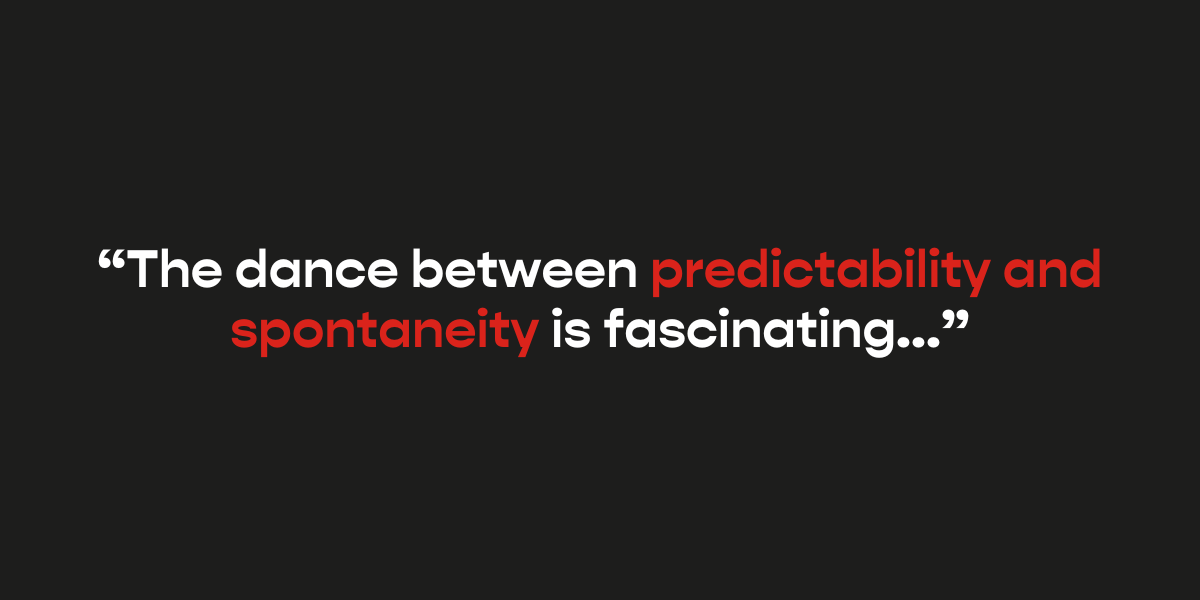
The dance between predictability and spontaneity is fascinating, and I hope this has given you a small, helpful insight into the oracle approach.
My recommendation is to choose an existing project first and use the oracle at specific points in the writing process. The advantage to this is that you will already know more about the context, and it may be easier to make your first lists of ideas or to know when or how to ask the oracle questions.
If you prefer to start from scratch, take a writing prompt of your choice and brainstorm with the oracle to find a starting point for the first scene.
Happy writing!
--




















